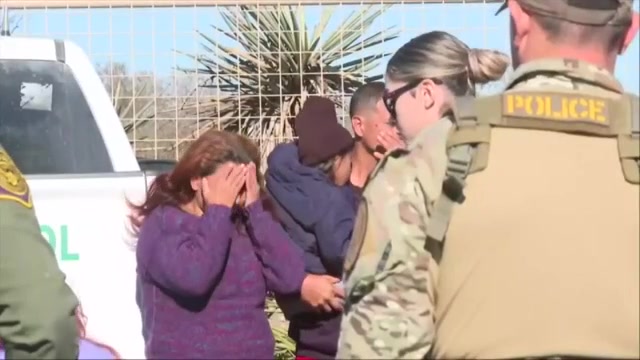Introduction
The political landscape surrounding immigration in the United States has been a contentious topic for years, and recent actions by President Donald Trump have reignited the debate. The repeal of the “Sensitive Places” law—a measure that previously provided safe havens for undocumented immigrants in churches, schools, hospitals, and other critical locales—has drawn responses from various religious and educational leaders. In light of this repeal, stakeholders are expressing their concerns regarding the implications for immigrant communities across the nation, especially in locations like Miami, Florida.
Understanding the Repeal of the “Sensitive Places” Law
President Trump’s decision to repeal the “Sensitive Places” law has significant ramifications for undocumented immigrants and their supporters. In his address, he emphasized the government’s responsibility to protect the nation from perceived threats, particularly in relation to unauthorized migration. Trump’s assertion that criminals largely constitute the immigrant population and his subsequent action to restrict protections for sensitive locations mark a pivotal moment in U.S. immigration policy.
Community Responses: Voices Against the Repeal
Religious and community leaders, including Tessa Petit, the executive director of the Florida Immigration Coalition, have publicly condemned the repeal. During a recent press conference, Petit asserted the necessity of safeguarding family assembly points and places of worship. She expressed her dedication to supporting Florida’s more than 1 million undocumented immigrants, stating, “some areas where families gather…should be off-limits” to law enforcement actions. This sentiment reflects a broader collective concern about the safety and well-being of immigrant communities in the state.
Religious Perspectives on Immigration
Miami Archbishop Thomas Wenski has also weighed in on this controversial issue, arguing that while border control is essential, the Catholic Church carries an ethical obligation to defend the dignity of all individuals, including immigrants. He emphasized that immigrants are more than mere statistics; they are “human beings” deserving compassion and respect. Wenski’s position represents a significant dilemma faced by religious organizations: balancing the call for lawful immigration practices while ensuring the humane treatment of migrants seeking asylum.
Educational Institutions Amid Policy Changes
The educational sector is not exempt from the dire consequences of this repeal. Leaders in education, including Miami-Dade School Board President Dr. Steve Garon, have expressed concern regarding their role in enforcement of immigration policy. Dr. Garon stated that schools are primarily educational institutions and not law enforcement agencies, emphasizing the need to approach any compliance with compassion. This raises important questions about how federal policies will affect school-age children, particularly those who are part of undocumented families.
Operational Compliance and Safe Learning Environments
Broward Schools Superintendent Dr. Howard Hepburn echoed Dr. Garon’s message, affirming that schools will remain focused on education without compromising on safety. The administration’s priority is to create a welcoming environment for all students, regardless of their immigration status. The Miami-Dade County Public Schools have also voiced their commitment to adhering to regulations while fostering a safe and supportive atmosphere for all who enter their doors.
Conclusion
The repeal of the “Sensitive Places” law marks a significant shift in the treatment of undocumented immigrants within the United States, creating a ripple effect across religious, educational, and community sectors. As concerns mount about the safety of vulnerable populations, advocacy groups, religious leaders, and educational authorities continue to grapple with the implications of this change. The dialogue surrounding immigration in the U.S. will undoubtedly remain contentious, as various stakeholders strive to balance law enforcement priorities with compassion for individuals and families affected by these policies.
FAQs
What is the “Sensitive Places” law?
The “Sensitive Places” law provided protection for undocumented immigrants from federal immigration raids in locations such as churches, schools, and hospitals. This law aimed to create a safe environment for individuals seeking essential services without fear of deportation.
What were the president’s reasons for repealing this law?
President Trump argued that the repeal was necessary to protect the nation from threats posed by undocumented immigrants, asserting that many within this population are criminals. He highlighted the need for stricter enforcement of immigration laws.
What are community leaders saying in response to the repeal?
Community leaders express concern over the implications for undocumented immigrants, emphasizing the need to protect sensitive locations from enforcement actions. Many maintain that these individuals deserve compassion and support regardless of their status.
How will schools be affected by this policy change?
Educational leaders indicate that they will comply with new regulations but also stress their primary role as educational institutions, dedicated to providing a safe and nurturing environment for all students, including those from undocumented families.
What actions have been announced by the Department of Homeland Security?
The Department of Homeland Security stated its intent to enforce immigration laws strictly, focusing on apprehending individuals deemed to be serious offenders, including those with violent criminal records.

